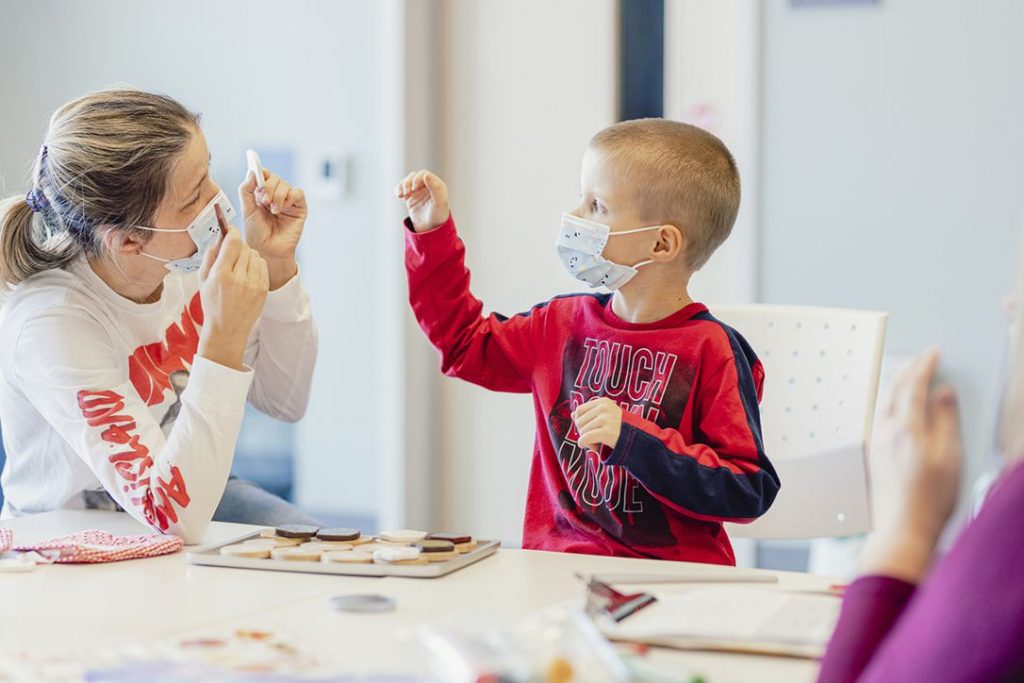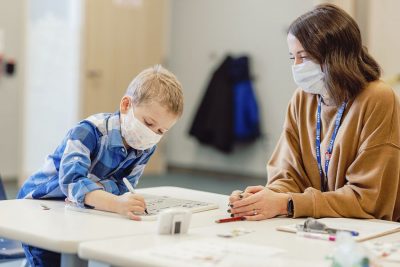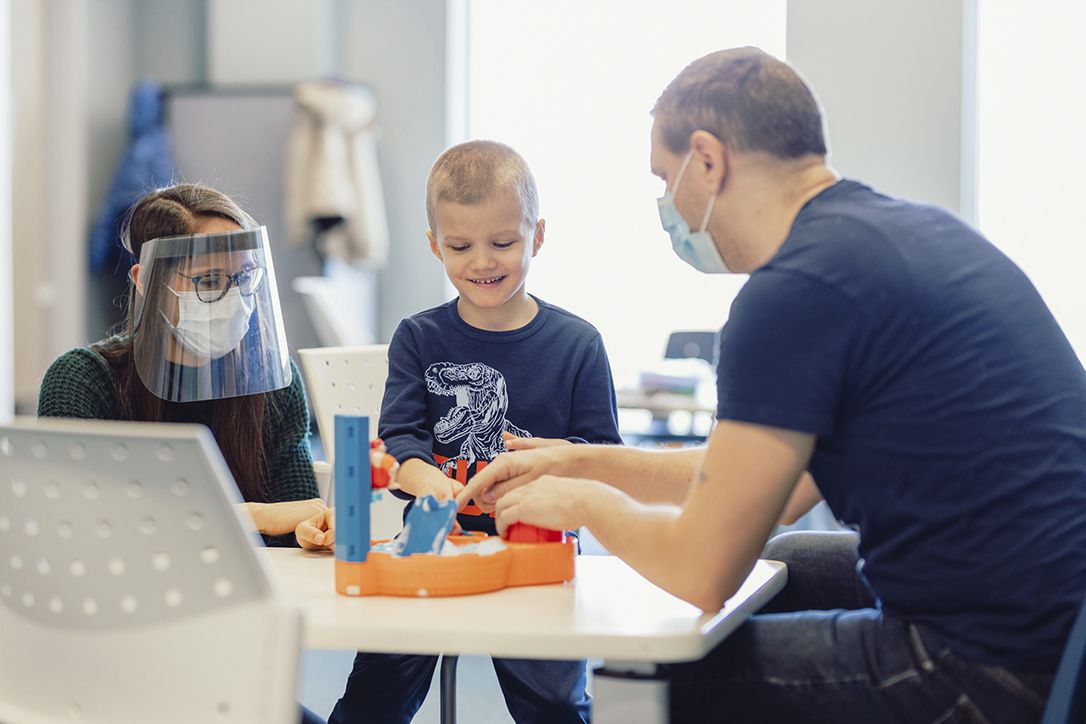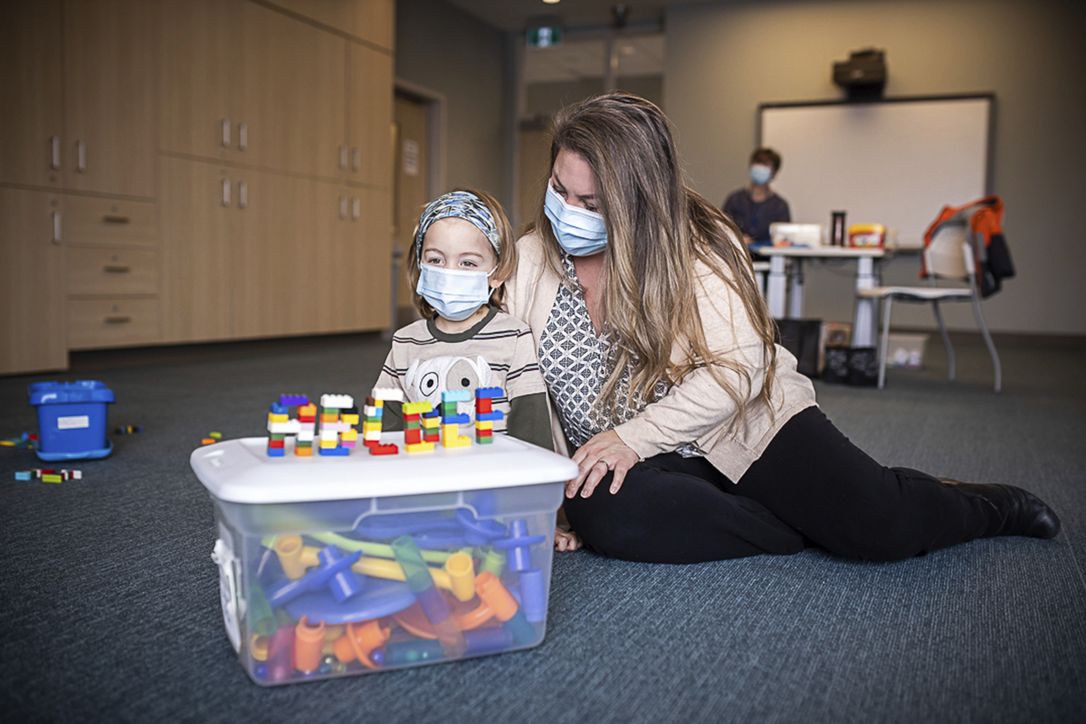
Free services for children with Autism and their families
If your child has Autism and you live in the Hamilton area, there’s an incredible range of free services you need to know about.
The McMaster Children’s Hospital Autism Program at the Ron Joyce Children’s Health Centre in Hamilton offers a wide variety of Foundational Family Services at no cost for families.
These services include clinical and recreational groups, workshops, consultations, and more. There’s no limit to how much you can access, so children and their families can attend free workshops and other events multiple times.
Working with families to create workshops
“Receiving an Autism diagnosis for a child can sometimes be overwhelming,” says Julia Penman, clinical leader with the McMaster Children’s Hospital Autism Program. “It’s important for parents and caregivers to have someone to turn to who understands their child and their individual circumstances.”
“The program brings together clinicians who can help parents find answers to their questions and provide them with strategies to address any concerns they may have,” says Penman.
The program’s Foundational Family Services are offered as part of the Ontario Autism Program and are funded by the Ministry of Children, Community and Social Services. Services include group recreational and clinical programs for children and youth, as well as workshops and training for parents and caregivers, plus an expert speaker series and parent support group.
Many services are available virtually, so you can connect from home.

You can join a variety of parent and caregiver workshops on many different topics, such as Understanding Challenging Behaviour, Introduction to Play Skills, Toilet Training, and Puberty and Sexuality. The program has worked together with families to create workshops on topics that are relevant and helpful for families.
After attending many of these group workshops, parents or caregivers have the chance to consult one-on-one with a clinician to tailor the strategies to their own child and family.
Social communication and fun with science
The program recognizes that each child is different and has their own needs and abilities that change over time as they learn and grow.
“That’s why clinicians take a personalized approach to helping children and their families, even in group workshop settings,” says Penman.
“Our groups offered to children and youth allow for a safe space for children to learn different skills in a group format with clinicians who really understand their diagnosis,” she says.
For example, in the eight-week clinical group called Beginning Social Skills, preschool and kindergarten-aged children build social communication skills with their peers through a series of fun activities. Their parent or caregiver assists them to respond and engage with one another.
“This is a great way for children to learn and practice the skills they will use in school or other group settings with other children,” Penman says.
The program also offers recreational groups that allow children and youth to join for a single session or a series.
For example, in the Fun with Science group for Grades 4–8, children explore science through different experiments while participating in a fun activity with their peers.
“Feedback from parents has been that their children really enjoy participating in these types of groups when the topic is of interest to them,” says Penman. “It helps to build their confidence in a group situation.”
Strategies designed for individual needs
Families can also make monthly individual clinic appointments with an autism therapist or behaviour therapist at no cost. In these consultations, families can discuss a specific skill or behaviour that they would like help with. Other consultation types include service planning consultations, resource consultations, school support consultations, and psychological consultations.
During these appointments, the clinician gathers information about the child or youth and offers tips and strategies that fit with their individual needs and circumstances.
“The individual consultations are such a great resource for families because of the range of topics they are able to discuss and the individualized level of support that children and their families can receive,” says Penman.
The free Foundational Family Services at the McMaster Children’s Hospital Autism Program are available at various times of the day and week, including after school hours as well as on Saturdays.
“We want to be as flexible as we can so that families are able to access the services that they are interested in,” says Penman.
Originally published in The Hamilton Spectator, March 31, 2021.


